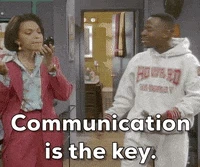What Does A Happy, Healthy Romantic Relationship Even Look Like?
We spend an awful lot of time and energy talking about what not to do in romantic relationships, and maybe not enough talking about what a healthy relationship looks like. It’s easy to point at what’s not working, especially when it’s causing us pain, but it’s oftentimes harder to put a finger on what makes a romantic relationship strong and successful.

So here’s a list of the necessary qualities — the basic ingredients, if you will — two people should have for their marriage to flourish. These qualities can be present in every person, but they may be expressed differently by different people.
The presence of these qualities ensures that both people are in the relationship for the right reason – to make a life with each other as lovers, companions, and mutual helpmates. There’s no room for using or abusing or just killing time in a healthy marriage.
Kindness

Kindness is the oil that keeps daily interactions running smoothly. Kindness is having good manners like saying please and thank you, doing thoughtful acts of service, being considerate of your spouse, speaking words of affirmation and giving sincere compliments, and being friendly and generous towards your spouse.
Not to be confused with being nice, kindness includes tough love — being willing and able to speak the truth with love when necessary, even if it will cause short-term pain or unpleasantness.
Respect

There are two definitions of respect, and both are needed in a healthy romantic relationship. First, respect can mean to admire something good, and this admiration for our spouse is essential. There must be something good in them that drew your attention in the first place and that you admire them for. This spark of admiration prevents people from settling.
Secondly, respect means treating each other with dignity. It means honoring the boundaries, needs, desires, feelings, rights, and traditions of the other person. Not in a legalistic, rigid way, but with love, communication, and reasonableness. If your spouse says they absolutely will not do X or if it’s really important to them that they do Y, then respect means honoring that. Respect includes open communication on these important items, not expecting blind submission to your will.
Respect also encompasses how you talk about your spouse to others and to your children. Bashing, criticizing, or complaining about your spouse is a form of disrespect that also teaches others to not respect your spouse.
Attentiveness

Paying attention to the other person is more than putting your phone down when they’re talking to you (although that’s very important too). Attentiveness is learning and remembering what they like and dislike, special days, and the details of what’s happening in their life, like with the children, at work, or their friends (what Dr. John Gottman, marriage expert, calls a “love map”).
Paying attention to your spouse includes being considerate — consider your spouse when making decisions and plans. Be thoughtful of their feelings, their schedule, etc.
Selflessness

Being selfless means to give of yourself for the good of your spouse. It’s being able to put their needs and desires before yours. Making sacrifices for your spouse might look like anything from washing the dishes, to watching the kids so they can have a night out with friends, to having sex, to financially supporting them on the way to their dream job.
Being selfless is not codependency — when you’re too responsible for your spouse, too much of a caretaker. Ideally, when both spouses are actively selfless — when both are giving and open to receiving — then the needs and desires of both will be met.
Effective Communication

Communication is almost always touted as the key to a lifelong marriage when people are handing out marriage advice. But effective communication is much more difficult than most people realize (until you’re married and trying to figure out what he meant by that…).
Effective communication means being able to voice your needs and desires. It means not being afraid of conflict and being able to fight productively and kindly. It means listening well. It means being honest.
Some elements of good communication are knowing when to speak and when to wait for a more prudent opportunity. Be aware of your tone and volume. Be aware of your own and your spouse’s verbal habits — do you tend to exaggerate or to take things personally? Would you benefit from something structured like a weekly marriage meeting to make sure nothing falls through the cracks?
Compatibility

Compatibility is more than having common interests — it’s a like-mindedness in essential areas. Compatibility means having sufficient values, beliefs, goals, interests, and a desired lifestyle in common. There are just some big questions where if you both don’t think the same way it can lead to major conflict, unhappiness, and long-lasting consequences. For example: Do you believe in God? Are you churchgoers? Do you hate living in the city? Do you want children? Do you believe divorce is an option? Do you try to live debt-free or are you comfortable with credit card debt? Contradicting answers to any of these questions can produce major, perhaps unresolvable, conflict in a marriage.
Figure out what beliefs, values, and goals are essential to you and communicate about these with each other early on in the dating phase.
Trust

If you don’t have trust, it’s extremely difficult to have a real relationship, maybe even impossible. Trust allows you to feel safe and secure with each other. It allows you to let your guard down and be vulnerable with each other. Being trustworthy means you will maintain confidence and privacy, be dependable and reliable, and be faithful and loyal. You’re there for the other person and you have their back, and the other person confidently believes they can rely on you.
Humility

Humility is a virtue that’s easy to distort. It’s not unregulated self-abasement or always dismissing compliments. Humility, properly understood, is the truth about yourself. Did you do something well? Then receive praise graciously and modestly. Did you screw up? Then acknowledge your culpability, apologize, and try to fix it.
Through this lens, humility is also a willingness to admit when you’re in the wrong and to seek reconciliation. It’s being willing to ask for help when you need it. It’s being willing to compromise. It being open to seeking outside advice like counseling when it could be beneficial. Humility is also being open to be influenced by your spouse – not rigidly or narcissistically holding onto your ways of thinking or decisions when your spouse has valuable and helpful insights.
Mercy

Being merciful towards your spouse means to forgive them (and forget! If you’re bringing it up in a fight, then you’ve neither forgiven nor forgotten.) Mercy means not holding grudges. Being able to show mercy requires an acceptance that both you and your spouse are flawed, imperfect human beings who will make mistakes and will hurt each other. In order to be open-hearted and joyful with each other, you need to be able to forgive.
Commitment

Yes, commitment is fidelity. But it’s also the determination to stick with your spouse and the relationship through the good and the bad. (Hence “for better and for worse.”) Sometimes that means choosing to maintain the marriage even if what you’re feeling for your spouse at the moment isn’t exactly love. Commitment is also a willingness to grow and to improve for your own sake, your spouse’s, and for the health of your relationship.
Another aspect of commitment is choosing your spouse over others. This means prioritizing them and their needs over your friends and even your family of origin. Getting married is a reordering of your life’s focus and priorities to your spouse. (Sorry, Mom.)
Maturity

Maturity in this context doesn’t have much to do with your physical age but more with your mental and emotional age. We all know a grownup who still acts like a child. You have to be mature to be able to be in a healthy relationship of any kind, not just marriage. Being mature means you have stability in your emotions, you’re responsible, you make good decisions, you have money management skills, you can keep a job, and you’re temperate with alcohol (to start with). In general, you act like a dependable adult and are a stable person.
Chemistry

Last, but certainly not least, is chemistry. We’ve all been told that what’s on the inside is what counts, and while that’s true, physical attraction is still important! Feeling physically attracted to each other is important for a healthy sex life, and we all know that a healthy sex life is essential for a happy marriage! Chemistry also includes things like having fun together, getting each other's sense of humor, being able to laugh together (or make each other laugh when the other is in a bad mood), and maintaining the romance.
Closing Thoughts
Ok, so you've read through the list, and maybe you're thinking, "That's a tall order. How many people out there actually possess all of these qualities?" But here's the thing, people who want (and who have) high-quality relationships also have high standards – for themselves and for their partner. Are you going to find THE PERFECT guy? Probably not. But can you find someone who has at least a seed of each of these qualities and the desire to be the best person and spouse he can be? I think yes.
Love Evie? Let us know what you love and what else you want to see from us in the official Evie reader survey.